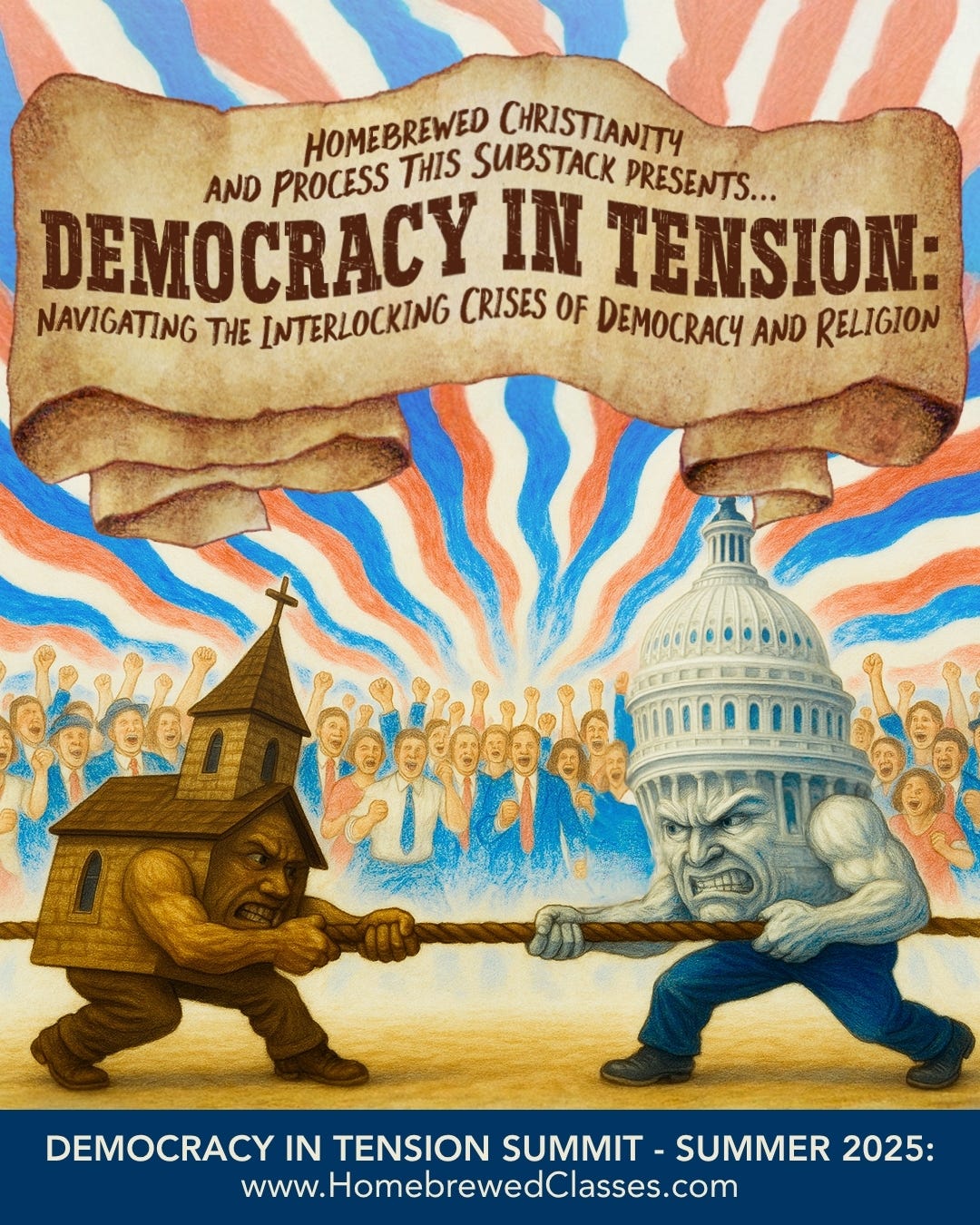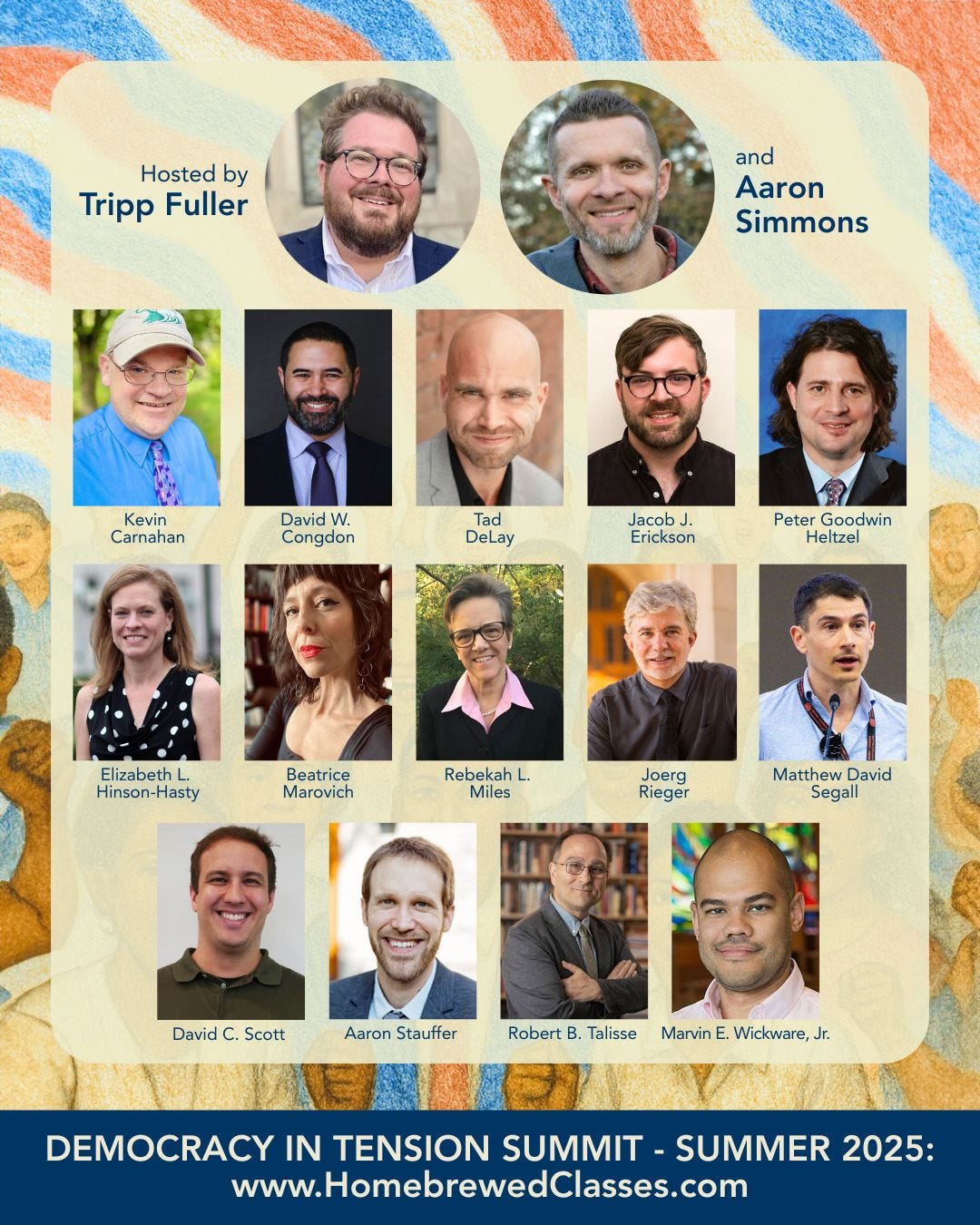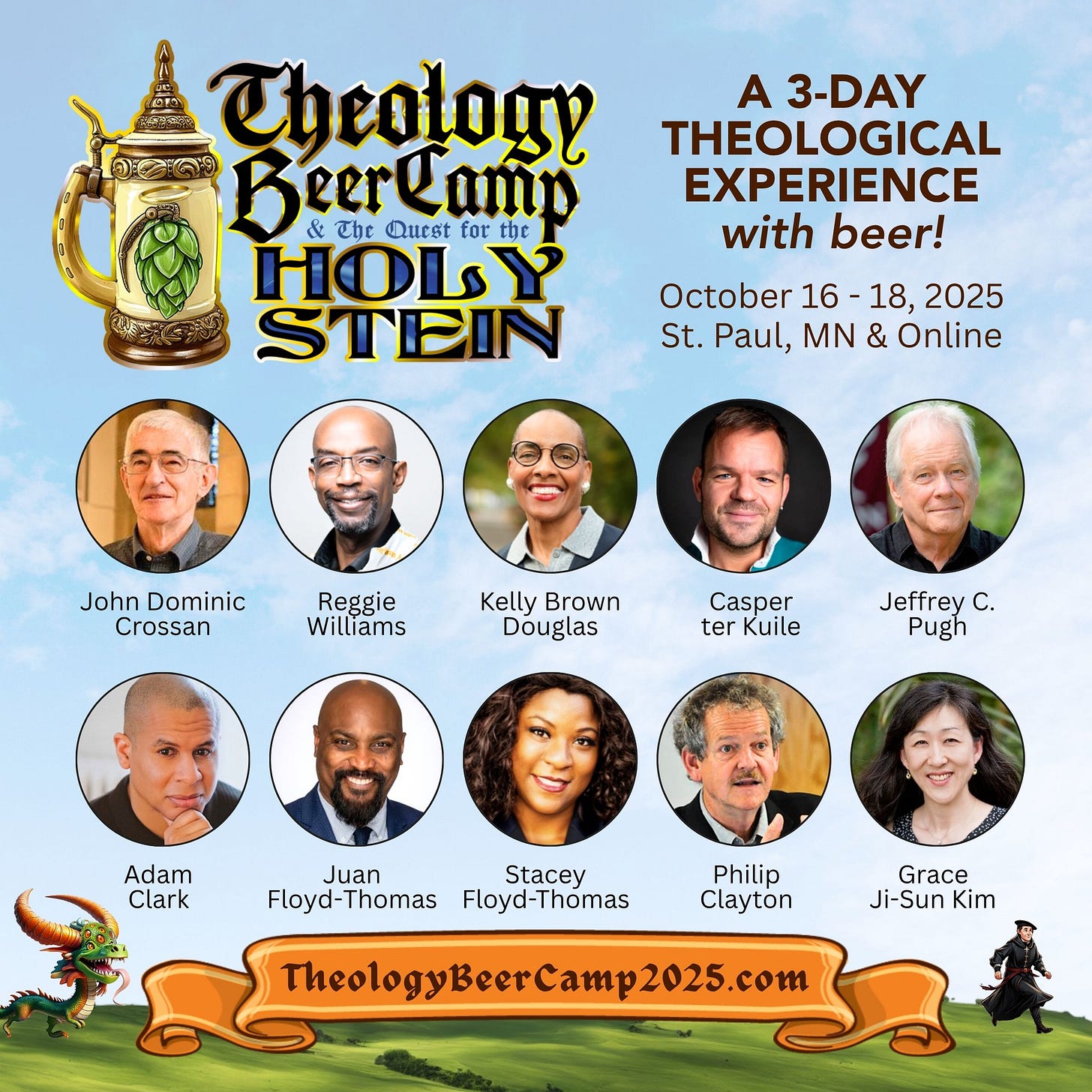What’s up, Theology Nerds!
So I had my buddy Matt Novenson from Princeton Seminary on to talk about what’s actually happening on the cutting edge of New Testament research these days, and let me tell you, it’s way broader than you might think. We covered five major areas where scholars are doing really fascinating work: first, bringing Jewish studies into conversation with the New Testament (like Matthew Thiessen‘s work on how Jesus actually dissolves ritual impurity rather than abolishing purity systems); second, looking at the broader ancient Mediterranean world beyond just “Jewish vs. Greco-Roman” contexts (Heidi Wendt‘s brilliant stuff on Paul as a “freelance religious expert” competing for influence); third, studying how the Bible has been interpreted not just in academic commentaries but in art, music, and everyday life (Lisa Marie Bowens‘ archival work on African American readings of Paul is mind-blowing); fourth, examining how biblical themes have unconsciously shaped modern cultural discourses like immigration policy (Yii-Jan Lin‘s work on how Revelation’s New Jerusalem imagery shows up in American immigration law is wild); and finally, reconnecting New Testament studies with theology through careful hermeneutics (David Lincicum at Notre Dame does this really well, tracing how early Christians read Paul reading Jewish scripture). The whole conversation was both entertaining for folks just interested in where the field is heading and super practical for anyone thinking about graduate school – Matt even gave great advice about just cold-emailing scholars because, surprise, most of them are normal people who actually like talking about ideas!
Dr. Matthew Novenson is a distinguished New Testament scholar now teaching at Princeton Theological Seminary. His scholarship focuses on Paul’s letters, early Judaism, and early Christianity. His latest book, “Paul and Judaism at the End of History,” offers a fresh perspective on understanding Paul’s theological vision and his relationship to Judaism. Novenson is known for his nuanced approach to historical interpretation that resists simplified readings of Paul through later Christian theological frameworks.
Previous Visits to the Podcast
His books:
The Grammar of Messianism: An Ancient Jewish Political Idiom and Its Users
Christ Among the Messiahs: Christ Language in Paul and Messiah Language in Ancient Judaism
Upgrade Your Subscription to Support Our Work
If you appreciate the work of Tripp Fuller and Homebrewed Christianity, please consider becoming a paid subscriber to the “Process This” Substack.
Five Emerging Research Areas
1. New Testament and Jewish Studies
This area involves bringing New Testament scholarship into conversation with cutting-edge research from Jewish studies more broadly, recognizing that Jesus, the disciples, and most New Testament authors were Jewish themselves.
Example Scholar: Matthew Thiessen (McMaster University)
Focus: Jesus and ritual impurity in the synoptic gospels
Key insight: Rather than abolishing Jewish purity systems, Jesus dissolves ritual impurity itself through his divine power, bringing people back into proximity with God
Method: Uses Jacob Milgram’s interpretation of Leviticus to understand purity codes as relating to death/life distinctions
Practical Application: This research changes how students read familiar New Testament terms by “de-Christianizing” translations. For example, ekklesia (usually translated “church”) simply means “assembly” and was used for both Jewish synagogues and early Christian gatherings.
2. New Testament and Ancient Mediterranean Religions
This approach zooms out from the traditional “Jewish vs. Greco-Roman” binary to examine the New Testament within the broader context of ancient Mediterranean cultures, including local indigenous traditions in Egypt, Arabia, Asia Minor, and elsewhere.
Example Scholar: Heidi Wendt (McGill University)
Book: At the Temple Gates: The Religion of Freelance Experts in the Roman Empire
Focus: Religious practitioners who competed for influence without institutional authority
Key insight: Paul functions as a “freelance religious expert” who must construct his own authority through direct divine revelation and personal suffering
Method: Compares Paul to other similar figures across different Mediterranean cultures
Significance: This framework helps explain Paul’s rhetorical strategies and the competitive dynamics visible in his letters, such as his conflicts with “super apostles” in 2 Corinthians.
3. New Testament and History of Interpretation (Non-Academic)
While traditional interpretation history focuses on scholarly commentaries, this area examines how biblical texts have lived in liturgy, art, music, and everyday Christian life throughout history.
Example Scholar: Lisa Marie Bowens (Princeton Theological Seminary)
Focus: Archival research on how Black Americans have interpreted Paul from the 17th century through the pre-civil rights era
Key discovery: Contrary to the well-known tradition (exemplified by Howard Thurman) that views Paul dimly due to household codes, there’s an extensive tradition of African American liberation readings of Paul
Sources: Sermons, autobiographies, conversion stories, government petitions by enslaved people arguing for abolition on biblical grounds
Method: Looking for biblical interpretation in unexpected documentary sources rather than just formal theological treatises.
4. New Testament and Cultural Studies
This broadest category examines how New Testament themes have become embedded in cultural discourses, often unconsciously, shaping how people think about issues far removed from explicit biblical interpretation.
Example Scholar:Yii-Jan Lin (Yale Divinity School)
Focus: How the image of New Jerusalem from Revelation (a holy city with everything impure excluded) has influenced American immigration policy
Method: Analyzing legal documents, bills, and briefs that use Revelation’s language without necessarily being aware of it
Additional Example: Lin’s earlier work The Erotic Lives of Manuscripts examines how 19th-century New Testament textual criticism adopted Darwinian reproductive language to describe manuscript relationships, revealing hidden cultural assumptions about purity and hierarchy.
5. New Testament and Theology via Hermeneutics
This area seeks to reconnect New Testament studies with theology through careful hermeneutical awareness, acknowledging both historical context and the text’s theological afterlife.
Example Scholar: David Lincicum (Notre Dame)
Book: The Commentarial Impulse
Focus: How theology is often constructed through interpretation—early Christians reading Paul, Paul reading Jewish scripture
Method: Tracing hermeneutical chains across different periods while maintaining theological and historical precision
Institutional Context: This work often flourishes at institutions with strong theology programs that support interdisciplinary dialogue, such as Notre Dame, Duke, and Princeton Seminary.
Advice for Prospective Students
Novenson encourages interested students to:
Read broadly in areas of interest to identify key scholars
Email scholars directly with brief, polite introductions
Attend conferences like SBL to meet scholars in person
Consider programs with good funding (since religious PhD programs aren’t a “growth industry”)
Be prepared for trial and error in finding research topics—it’s normal to go through several ideas before finding one that works
Our conversation emphasizes that New Testament studies are increasingly interdisciplinary, drawing insights from history, anthropology, cultural studies, and other fields to generate fresh perspectives on ancient texts and their ongoing influence. For those interested in the 27 books of the New Testament, there are still plenty of places to dig in for new research.
REGISTER NOW for the “Democracy in Tension” Online Summer Summit!
Democracy today faces profound challenges – polarization, inequality, populist authoritarianism, and widespread cynicism are eroding the foundations of democratic life. Yet, what if democracy's greatest strength lies not in eliminating these tensions, but in productively embracing them?
Reimagine democracy as a space for productive tension—not uniform agreement.
Engage new tools to resist polarization, cynicism, and political despair.
Explore how religion and democracy can coexist in pluralistic societies.
Transform political enemies into adversaries through agonistic engagement.
Confront the forces eroding democratic life with bold, practical insight.
Connect with scholars and citizens committed to revitalizing democratic imagination.
ASYNCHRONOUS CLASS: All lectures will be released on Monday, July 28th. You can participate fully without being present at any specific time. Replays are available on the Class Resource Page.
COST: A course like this is typically offered for $250 or more, but we invite you to contribute whatever you can (including $0) to help make this possible for everyone!
Join Us For Theology Beer Camp!
Theology Beer Camp is a unique three-day conference that brings together of theology nerds and craft beer for a blend of intellectual engagement, community building, and fun. This event features a lineup of well-known podcasters, scholars, and theology enthusiasts who come together to “nerd out” on theological topics while enjoying loads of fun activities.
Guests this year include John Dominic Crossan, Kelly Brown Douglas, Philip Clayton, Stacey Floyd-Thomas, Jeffery Pugh, Juan Floyd-Thomas, Andy Root, Grace Ji-Sun Kim, Noreen Herzfeld, Reggie Williams, Casper ter Kuile, and more!

















Share this post